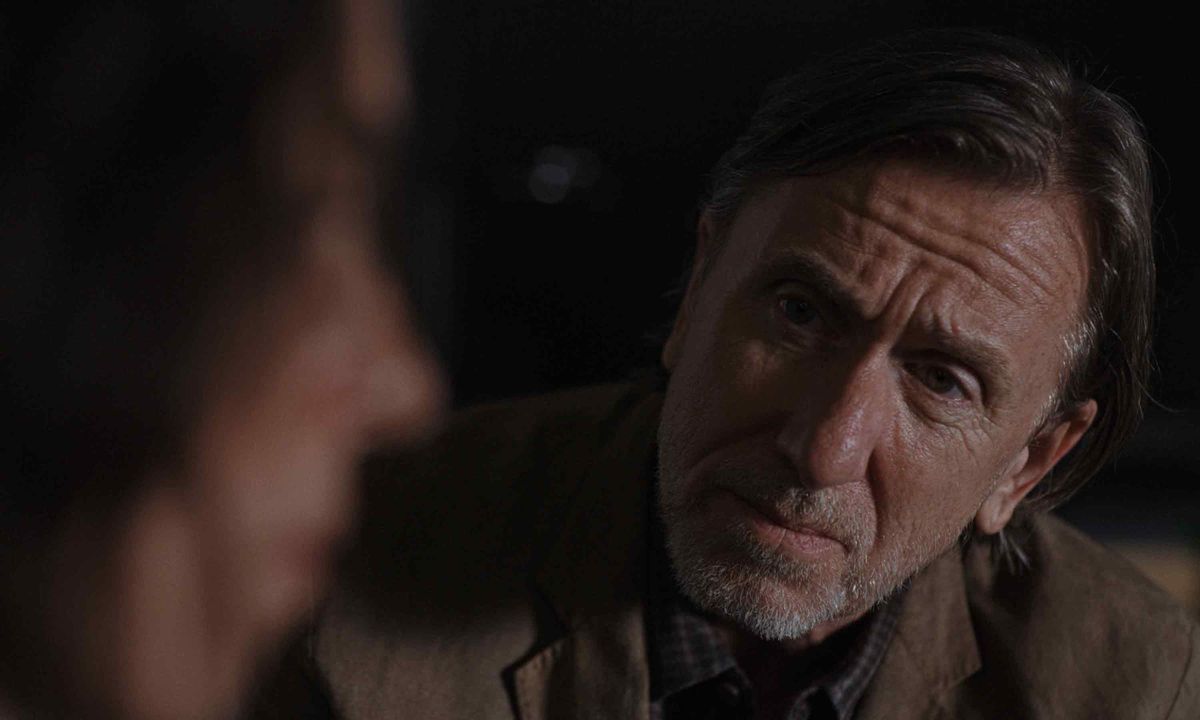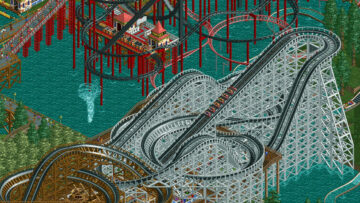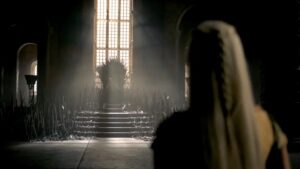Resurrection hinges on a seven-minute monologue that shifts the film from a paranoid psychological thriller into something far stranger and more primal. The tonal gambit writer-director Andrew Semans is attempting in this film is tricky, to say the least. And the whole thing simply wouldn’t work without The Night House’s Rebecca Hall. In Hall’s capable hands, that monologue is laden with dread. In one unbroken shot, her character, Margaret, gives the audience some crucial context by relaying a story from her past — the type of story that makes viewers’ stomachs drop to their knees. Coming from most anyone else, it might just produce giggles.
Margaret is a well-dressed pharmaceutical executive with a razor-sharp bob haircut. Her life revolves around two things: her job and her 17-year-old daughter, Abbie (Grace Kaufman). Abbie’s father is not, and has never been, in the picture. But that’s fine, because the hyper-competent Margaret has always been more than enough parent for her only child. Disciplined to the point of masochism, Margaret herself has no friends, save for a no-strings-attached affair with a married co-worker. And she likes it that way. But now that Abbie is getting ready to go away to college, Margaret can feel her sense of control over her life beginning to slip.
It’s debatable whether what happens next is actually real, or whether some (or even all) of it is in Margaret’s mind. It could all be part of a psychotic break, resulting from an oncoming 18-wheeler of psychological fragility tied to Abbie growing up and not needing her mother anymore. Semans plays it straight, launching into a stone-faced series of increasingly unsettling events that begins when Margaret spies David (Tim Roth) sitting in on a presentation at a conference she’s attending for work. Suddenly overcome by panic, she rushes out of the room, her heart beating fast and her breathing ragged.
Photo: IFC Films
Then Margaret starts seeing David everywhere she goes. She confronts him, telling him to stay the hell away from her and her family. But he persists, lingering at the edges of her peripheral vision, just far enough away that she can’t file a restraining order. To Margaret, he’s a ghost from her past whose mere presence is enough to paralyze her with fear. Her reactions are so dramatic that it’s difficult not to wonder if he is, in fact, possessed of some malevolent supernatural power.
Semans films David’s early appearances like the stolen glimpses of Michael Myers in the first half of John Carpenter’s Halloween — something evil spotted out of the corner of the eye, the vague shape of a predator that ignites the flight-or-flight response in the animal part of the brain. David is a master of psychological and emotional abuse, and he’s returned with the intention of getting his hooks back into Margaret by giving her something she desperately wants.
Roth plays David with an eerie sense of calm, manipulating Margaret and steadily undermining both her self-esteem and her sense of reality with the nonchalant air of a man who’s ordering breakfast. (One scene takes place in a diner, making this demonstration of the banality of David’s evil entirely literal.) Hall, on the other hand, plays her role like she’s being torn apart from the inside out. The mask of normality practically melts off her as she regresses from a self-assured woman into a terrified little girl. Her eyes glitter. Her face is sallow. Her movements are uncertain. Margaret has been knocked out of her orbit by a man she thought she’d never see again, and Hall brings a pathos to her character’s disintegration that gives this increasingly bonkers story the emotional core it needs to be even marginally believable.
One gory scene toward the end of Resurrection pushes that suspension of disbelief further than many viewers will be willing to go. On its surface, this is a woman-losing-her-grip thriller in the mold of Roman Polanski’s Repulsion. Resurrection plays with the audience’s sense of reality by presenting the story from Margaret’s increasingly delusional point of view.

Photo: IFC Films
But occasionally, Semans abruptly pulls back from this subjectivity to a more detached gaze, presenting jaw-dropping events in an offhanded tone that’s designed to make viewers question whether they can trust their own eyes and ears. This whiplash combines with horror techniques — particularly a steadily escalating sense of dread and panic — to evoke the fractured consciousness of a gaslighting victim. The approach works much more effectively than Semans’ clunky attempts to work #MeToo into the text of the film, and it makes for a viewing experience that looks like a drama but feels like a horror movie. David is both the boogeyman and just a man, a distressing dichotomy that’s also true of real-life abusers.
Resurrection is bound to be divisive. It’s actively trying to provoke its audience, which some might find more upsetting than anything that actually happens in the film. And that’s fair enough. But whether or not it’s to anyone’s particular taste, the fact remains that this is an audacious film that asks viewers to take its hand and come along to some particularly dark, surreal, and grotesque places. Throughout that descent, it holds on with a grip that’s tight enough to keep it from spinning out into ridiculousness. If a film this bizarre can produce gasps instead of giggles, that itself is a remarkable achievement.
Resurrection opens in theaters on Friday, July 29, and will be available for on-demand rental on Aug. 5.












